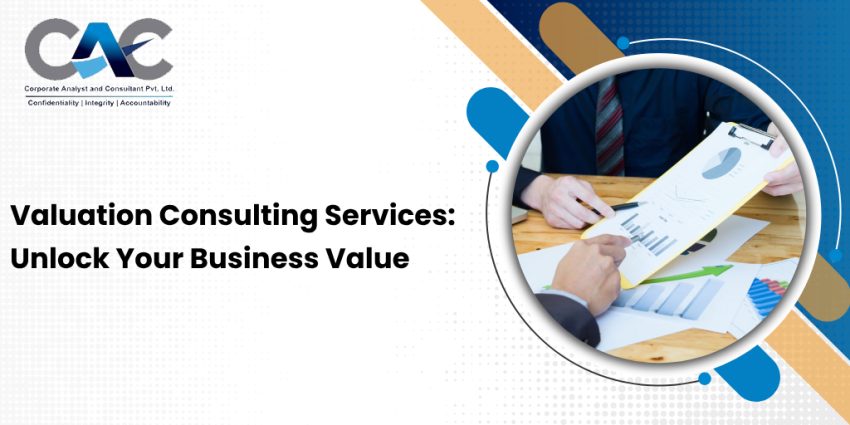CAC specializes in delivering comprehensive valuation consulting services tailored to the unique needs of businesses across industries. In this competitive world of business, it is important to know the real value of your business. Whether you are considering attracting investors, merging, acquiring, succession planning or just as part of growth evaluation, business valuation must be a well-performed activity that offers the transparency and assurance to make well-informed decisions. Valuation is not a universal process, it should be approached individually based on the industry the company belongs to, its financial performance, level of growth, and the particular purpose of valuation. Selecting the appropriate valuation method, business owners will be able to better understand their strengths and potential, and it will make their company successful and sustainable in the long-term.
Valuation Consulting Services: Types of Valuation Methods Every Business Owner Should Know
Asset-Based Valuation
By adding up all a company’s tangible and intangible assets, figuring out the difference between them, and deducting the liabilities, the asset-based approach to valuation establishes a company’s worth. This technique is useful especially when dealing with firms within the asset-intensive sector such as the manufacturing, construction or real estate sector and in the case of liquidation. The key limitation of it, however, is that it underestimates those types of businesses that revolve around the intellectual property or service type, e.g. technology startups, where human capital in the form of intangible capital is in the centre of the focus.
Market-Based Valuation
The market-based technique of valuation involves comparing a company’s value to that of similar companies that have previously been sold or are publicly listed. This method is based on getting industry peers and doing a financial analysis, transactions, or stock market performance to determine a fair market value. It is best suited to businesses that have a competitive industry and dependable information about similar businesses is readily accessible. As an example, retail, hospitality or healthcare industries are often used to this approach. Its weakness, though, is the limited application in niche markets or industries with little data, on which the comparisons cannot be done with certainty or even be impossible.
Income-Based Valuation
Capitalization of Earnings, which utilizes a capitalization rate on current earnings to estimate value, and Discounted Cash Flow (DCF), which estimates future cash flows and discounts them back to present value, are two well-used methods that are often utilized. This method suits very well for companies with stable, predictable, and consistent cash flows; thus, it is ideal for established firms. It greatly relies on economic conditions, estimates, and assumptions. Incorrect forecasting of income, expenses, or discount rates can contribute significantly to the overall valuation outcome.
Earnings Multiplier (Price-to-Earnings Ratio Method)
By applying an industry-standard multiple to a company’s net earnings, the earnings multiplier method, also referred to as the Price-to-Earnings (P/E) ratio method, values the company. Essentially, it evaluates the price, at which investors are ready to pay every unit of profit generated. This approach would be especially helpful to businesses in the retail, consumer goods, or financial sector that are relatively steady in the level of profitability and have available industry benchmarks. Nevertheless, the weakness lies in market fluctuations and volatility in the industry, which can bias multiples and lead to over- or under-value. It may also not be suitable in case of new companies or those with unstable or falling profits.
Conclusion
Business valuation is an essential procedure that will give owners the strength to make decisions that are strategic and based on data. The awareness of various valuation approaches that include asset-based, market-based, income-based, and earnings multiplier enables the business to determine the real value of the business, attract investors, enter a better deal. CAC offers the experience to ensure that you go through every phase whether you are undertaking a merger, raising capital or readying to do succession.
Also Read: Valuation & Modelling Consultants in Delhi: Driving Strategic Business Decisions
















